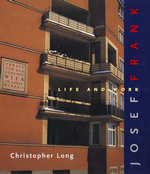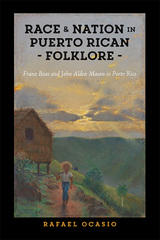
Educated in Vienna just after the turn of the century, Frank became the leader of the younger generation of architects in Austria after the First World War. But Frank fell from grace when he emerged as a forceful critic of the extremes of modern architecture and design during the early 1930s. Dismissing the demands for a unified modern style, Frank insisted that it was pluralism, not uniformity, that most characterized life in the new machine age. He called instead for a more humane modernism, one that responded to people's everyday needs and left room for sentimentality and historical influences. He was able to put these ideas into practice when, in 1933, he was forced to leave Vienna for Sweden. There his work came to define Swedish (or Scandinavian) modern design. For more than thirty years he was the chief designer for the Stockholm furnishings firm Svenskt Tenn, producing colorful, cozy, and eclectic designs that provided a refreshing alternative to the architectural mainstream of the day and presaged the coming revolt against modernism in the 1960s.
In this sensitive study of one of the twentieth century's seminal architects and thinkers, Christopher Long offers new insight into Josef Frank's work and ideas and provides an important contribution to the understanding of modernist culture and its history.


This book explores the issues of nation and modernity in China by focusing on the work of Zhou Zuoren (1885–1967), one of the most controversial of modern Chinese intellectuals and brother of the writer Lu Xun. Zhou was radically at odds with many of his contemporaries and opposed their nation-building and modernization projects. Through his literary and aesthetic practice as an essayist, Zhou espoused a way of constructing the individual and affirming the individual’s importance in opposition to the normative national subject of most May Fourth reformers.
Zhou’s work presents an alternative vision of the nation and questions the monolithic claims of modernity by promoting traditional aesthetic categories, the locality rather than the nation, and a literary history that values openness and individualism.
READERS
Browse our collection.
PUBLISHERS
See BiblioVault's publisher services.
STUDENT SERVICES
Files for college accessibility offices.
UChicago Accessibility Resources
home | accessibility | search | about | contact us
BiblioVault ® 2001 - 2024
The University of Chicago Press









